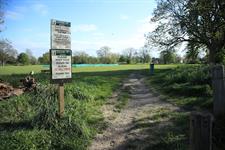A report by the Charity Commission has criticised trustees of the charity responsible for Wimbledon Common for their handling of a long-running dispute, amid concerns the report was softened after threats of legal action.
Third Sector has seen evidence that Sir Ian Andrews, a former trustee of Wimbledon and Putney Commons Conservators, threatened to launch a judicial review over a draft version of a commission statutory inquiry report on the charity, and that subsequent versions of the report contain fewer criticisms of the actions of some trustees.
The regulator said it made independent, evidenced findings without fear or favour and declined to comment on any leaked drafts.
The charity’s board is made up of a mix of trustees appointed by government departments and those elected by local residents.
Andrews was appointed by the Ministry of Defence. Another former trustee has told Third Sector he believes the threat of legal action has forced the commission to produce a “whitewashed report” that protects Whitehall-appointed trustees.
The commission opened a statutory inquiry into WPCC in August 2016 after a dispute erupted between trustees over whether the charity had lost out financially when it sold rights to build an access road, known as an easement, on Putney Common.
The charity’s board, including Andrews, sold the easement to the Conservative-led Wandsworth Borough Council for £350,000 in a deal completed in 2014, but failed to obtain a legally required qualified surveyor’s report at the time. Subsequent surveyors’ reports estimated that the charity lost out on between £325,000 and £1.5m as a result, although these figures are hotly disputed.
The inquiry report, published today, focuses on the handling of the dispute by trustees, some of whom were in position at the time the easement was sold and some of whom were elected in 2015 and began to question whether charity law had been followed. It says that the failure to manage the dispute over the easement was evidence of mismanagement.
In relation to the easement itself, the report says that “the original trustees should have obtained a formal surveyor’s report” and this would have been “best practice”, but “the inquiry cannot conclude the failure to obtain a formal surveyor’s report has resulted in financial loss to the charity”.
But an earlier version of the report, dated 11 February 2020, and seen by Third Sector, said that although land valuation was not a precise science “it is evident that a significant loss was incurred” through the sale of the easement.
That month, lawyers acting on behalf of Andrews sent a letter to the commission, threatening legal action over the report.
Andrews was in post at the time the easement was granted and remained there until early 2017.
A subsequent draft of the report, dated March, notes the range of valuations that were made after the easement was granted, but does not say that a loss had occurred, although it does say the original trustees “did not comply fully with their trustee duties” when they failed to get a report produced, something that is omitted from the final report.
A Charity Commission spokeswoman said: “In all our inquiries, we make independent, evidenced findings without fear or favour. Our role is to serve the public interest by arriving at truthful and fair conclusions.
“A statutory inquiry does not conclude until a statement of results of inquiry is published.
“It is standard practice, in accordance with principles of natural justice as set out in caselaw and procedural fairness, for us to send draft conclusions in draft form for representations by those concerned. This process is followed in every investigation the commission concludes.
“We cannot and will not comment on confidential draft reports leaked to the media while our investigations are underway. Such drafts contain provisional conclusions that may change based on further evidence and input.
“The report published today marks the conclusion of our inquiry and presents the findings of the inquiry in full.”
Andrews did not respond to Third Sector’s request for comment.
Diane Neil Mills, the current chair of the charity who was elected in 2018, said in a statement that the conservators had worked with the inquiry and had “put in place a number of measures to bolster governance of the charity”.
